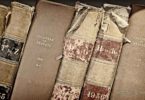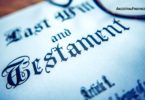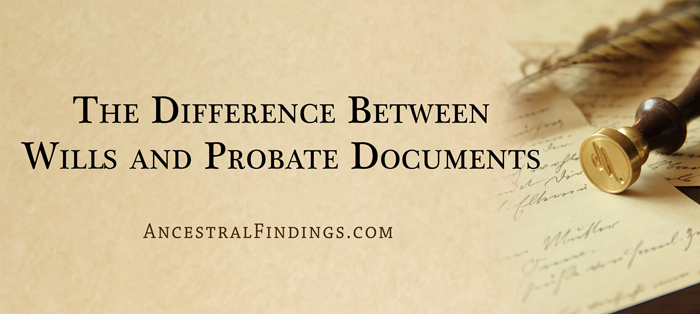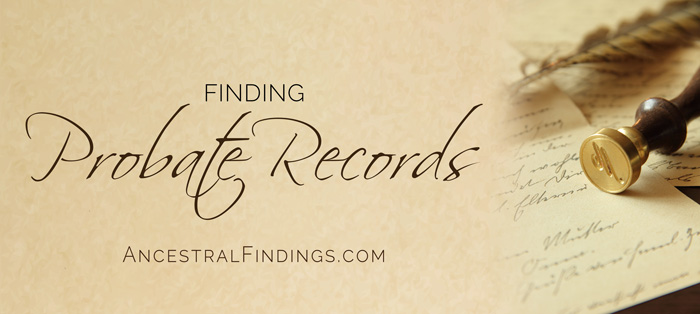As a genealogist, you probably already know you should be looking for the wills of your ancestors. Wills can be very sparse, or they can contain a treasure trove of genealogical information such as the names of spouses, parents, siblings, children, and other, possibly previously unknown, relatives. You can also get an idea of the relationship between the will-writer and the people named in it based on what they were or were not given, and you can learn about the economic situation of the writer of the will, as well.
Fortunately, Ancestry.com now has a rather large collection of digitized wills on it, collected from county courthouses from across the country, which makes looking for wills much easier than it used to be. You can still go to county courthouses in person to look, or order copies from them, as Ancestry hasn’t gotten to every courthouse yet.
Wills are a given in genealogical research. But, what about probate records? These important documents are often overlooked by family history researchers, especially beginning ones. Even researchers with some experience may find themselves glossing over probate records as being unimportant, or even skipping them altogether (and maybe being disappointed there was no will, but “only” a probate record).
However, probate records are important and valuable genealogical documents with a lot of interesting information to share with those who care to look. While they may not name names (although, sometimes they do), they can tell you a lot about your ancestor by the estate they left behind.
Probate records are the records that are associated with discharging a deceased ancestor’s estate. They were typically generated if your ancestor died while being owed money, owing someone else money, if the will was contested, or if there is a search for heirs that had to be done before discharging an estate. An estate could be probated whether your ancestor left a will or not.
One of the most common things you will see in probate records is an estate inventory. This is a list of the belongings of any value that your ancestor left behind. Estate inventories are done for both those with wills and those without them. Each item of value they owned is listed, the number of items of the same kind (like sheep or dishes) is listed, and a monetary value is assigned to each item or group of like items, to arrive at a total monetary value for the estate. This is actually quite fascinating information, as you will be able to know exactly what your ancestor owned and get an idea of the quality of items in their home by their monetary value. This provides a remarkably detailed insight into the daily life of your ancestor in the period before the inventory was taken.
By knowing what your ancestor owned and how much it was worth, you can vividly picture their home in your mind, get an idea of their economic status, and even learn what things were most important to them and what kind of lifestyle they chose. More than just a list of belongings, an estate inventory tells you what your ancestor’s home life looked like, which is invaluable genealogical information.
The inventory of the estate might even give you an idea of family heirlooms that might be out there for you to search for, such as photos. If you come across photographs in an inventory of an estate, especially in the 1800s, and you have not seen these photos before, you now know they once existed and still might. You can now begin a search for them, and maybe see some ancestors face to face for the first time. It is a thrilling prospect and one you would not have known to look for without the estate inventory.
Another common thing you will find in probate records is a list of debtors and creditors of the estate. This lets you know who your ancestor did business with, which opens up important new avenues of research if you come across a brick wall in that family line. Researching your ancestor’s business associates may yield more information about your ancestor and/or their other relatives, such as spouses, parents, children, and others.
In fact, sometimes those relatives are actually the named debtors or creditors of the estate. This is wonderful if you are missing ancestor names on your family tree (or if you didn’t know you were missing any). If someone has the same last name as your ancestor and you never heard of them before, you now have someone new to look into to find their exact relationship to your ancestor, which can fill in more information on family trees and even break through brick walls. Those familial names also let you know that your ancestor was doing business with family, and what kind of business they were doing. Again, this is fascinating personal information you might not find anywhere else.
The third thing to look for is whether anyone contested the probate of the estate. This may have happened whether or not there was a will. If anyone contests it, this will give you a clue as to what family relationships were like among contemporary ancestors in those times. Are children from a first marriage contesting a more favorable settlement given to children from a second marriage? Is a wife contesting being left out of a settlement when the children were included? Are other relatives contesting for any reason? What is the reason? The probate records will usually tell you, and it provides an intriguing glance and deep, personal family relationships at the time the estate was probated, and even before that time.
You can find probate records online at places like Ancestry.com, in old newspaper records both online and offline and at county courthouses where your ancestors lived. If you haven’t explored them yet, they are well worth looking into. You never know what wonderful genealogical gems you will find there.




